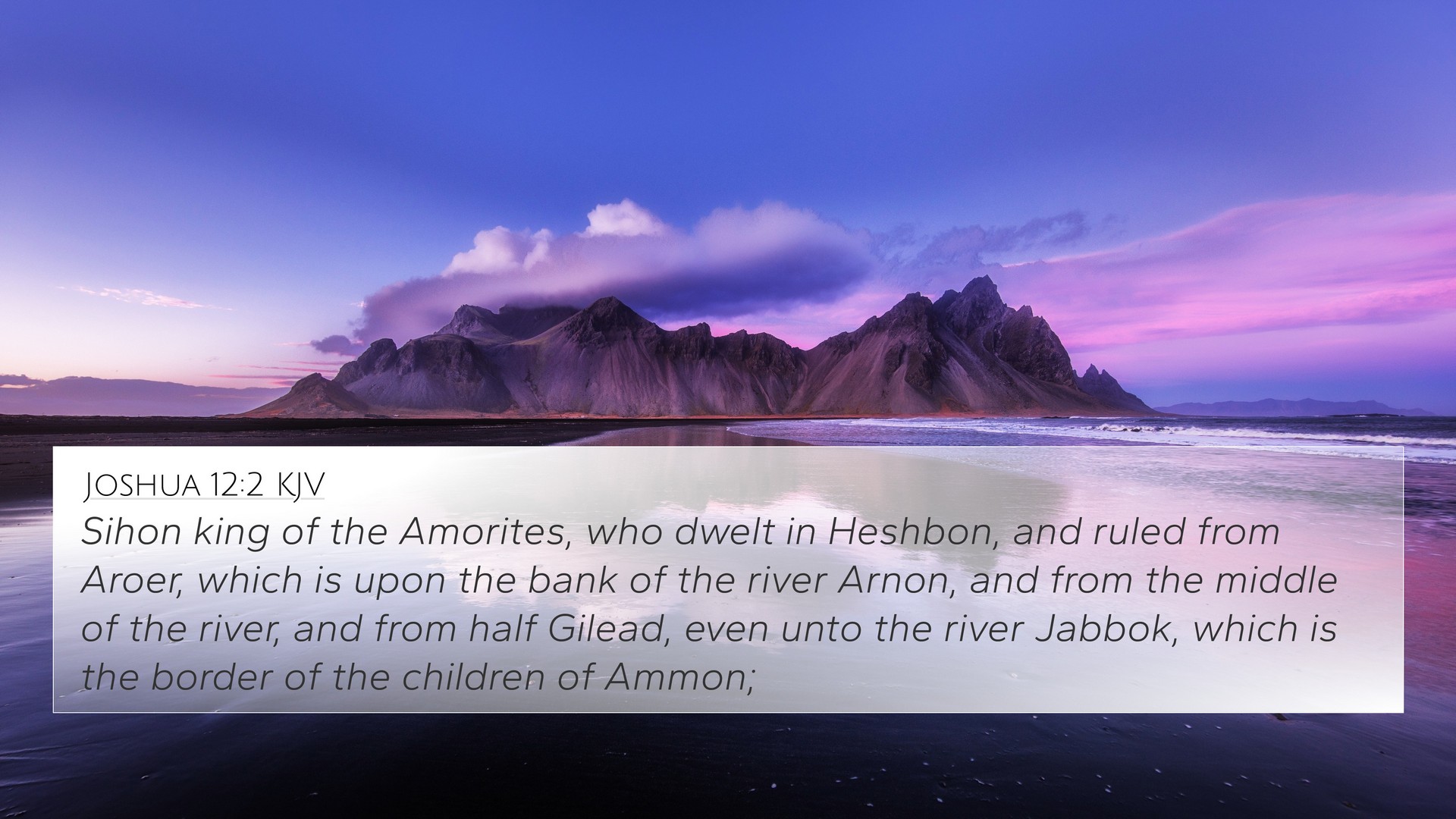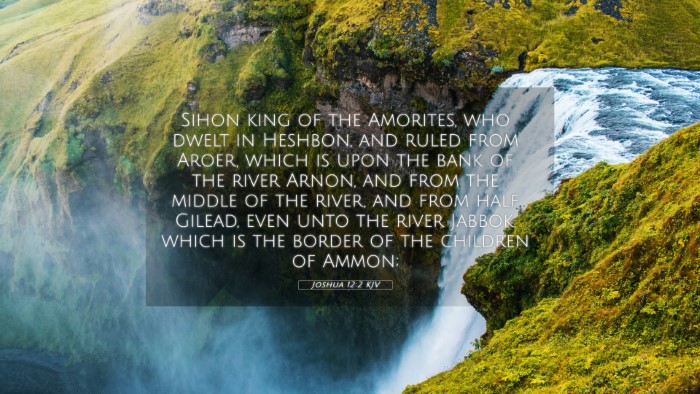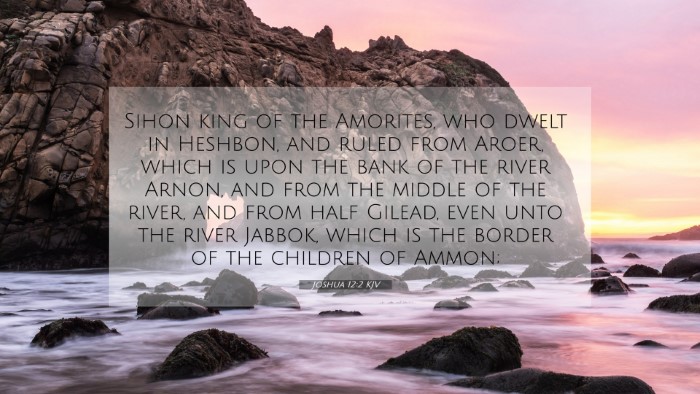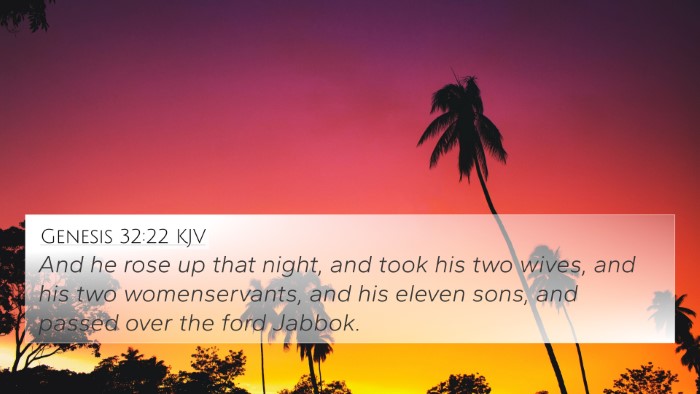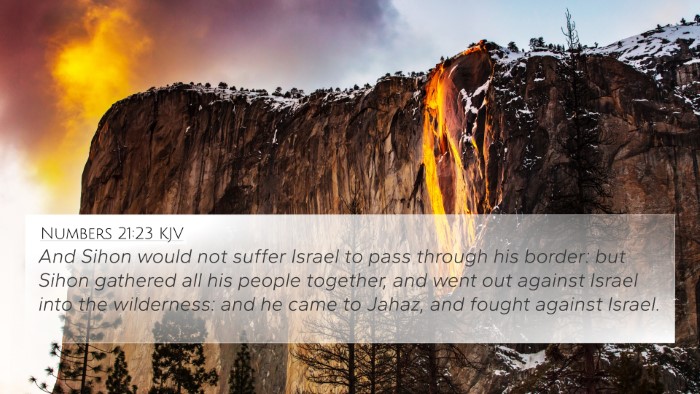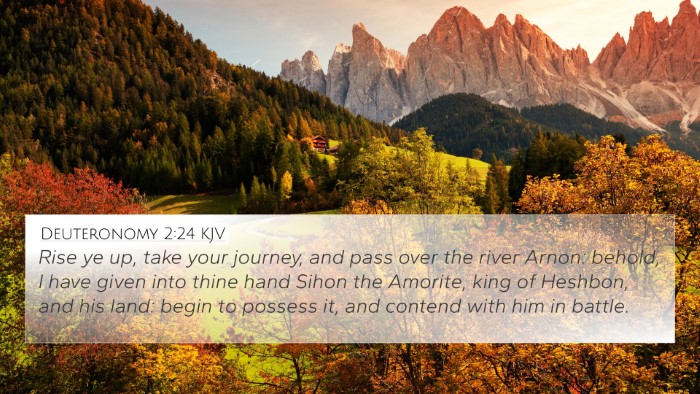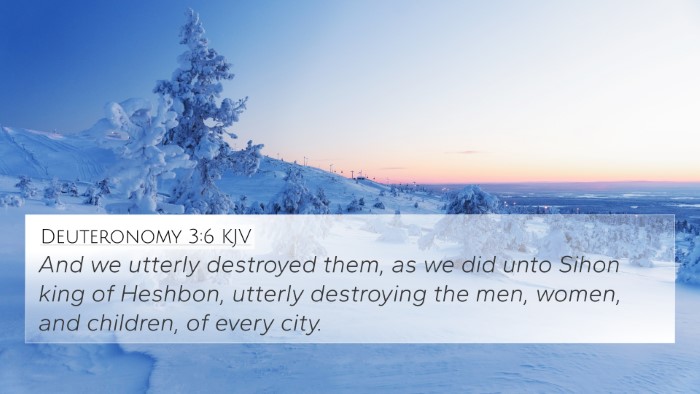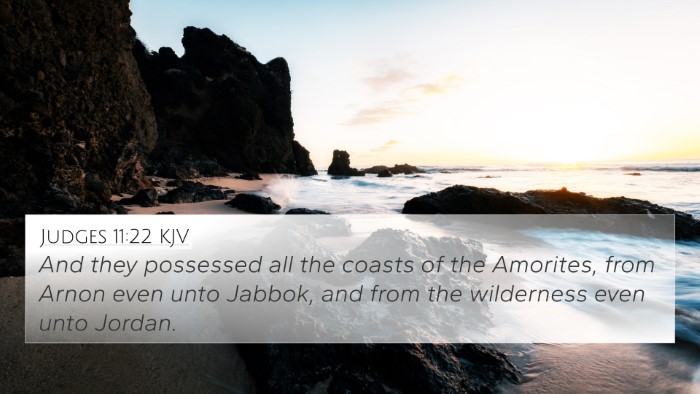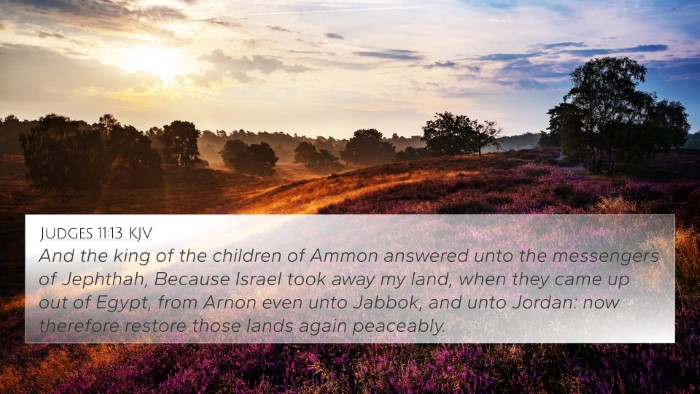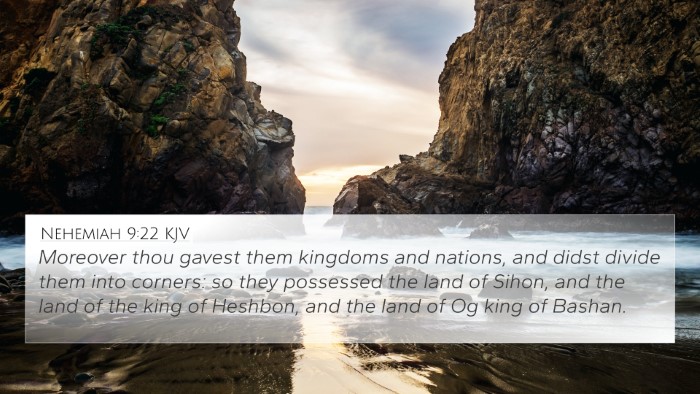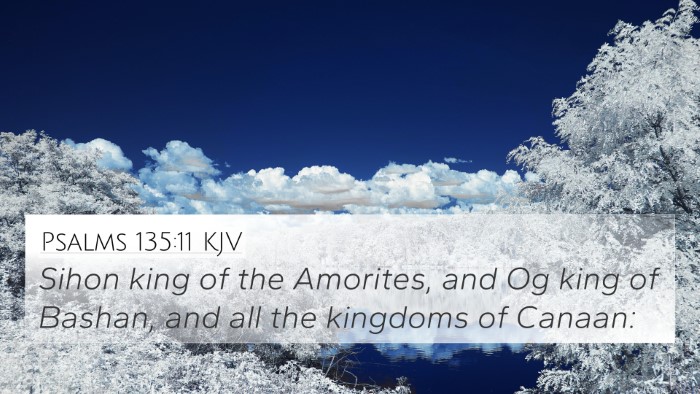Understanding Joshua 12:2
Joshua 12:2 states: "And Sihon king of the Amorites, and Og king of Bashan, which was the remnant of the giants, that dwelt at Ashtaroth and at Edrei." This verse highlights the kings defeated by the Israelites as they entered the Promised Land, emphasizing God's power in granting victory over formidable foes.
Meaning and Context
This verse occurs within the context of the Israelites’ conquest of Canaan. The defeat of Sihon and Og represents a significant milestone demonstrating God's support and the unity among the Israelite tribes under Joshua's leadership. It also serves as a reminder of God's promise to His people and the fulfillment of His covenant.
Insights from Public Domain Commentaries
Matthew Henry's Commentary
Henry reflects on the significance of Sihon and Og as representatives of the opposition that Israel faced. He asserts that their defeat symbolizes the assurance of God’s presence and power. He emphasizes that despite the might of these kings, nothing can stand before the Lord's will.
Albert Barnes' Notes
Barnes emphasizes the importance of naming these kings, showing their notoriety and the extent of the victory. He details how Og, described as a remnant of the giants, illustrates the overwhelming nature of the enemies that Israel faced, thus highlighting God's miraculous aid in their conquest.
Adam Clarke's Commentary
Clarke discusses the historical context of these kings and their lands, elaborating on Og’s stature and the geographical significance of Bashan. He points out that these enemies were not merely physical opponents, but also represented spiritual challenges that Israel had to overcome in their journey of faith.
Bible Verse Cross-References
- Numbers 21:21-35 - Describes the Israelites' victories over Sihon and Og in more detail.
- Deuteronomy 3:1-11 - Provides additional context regarding Og's size and the lands conquered.
- Joshua 13:12 - Continues the narrative by mentioning the lands that were given to the tribes of Israel.
- Psalm 135:10-12 - Reflects on the victories over these kings as part of God's sovereign actions.
- Romans 8:31 - “If God be for us, who can be against us?” - highlights the spiritual application of this victory.
- 1 Corinthians 10:11 - Suggests these events serve as examples for us, connecting the Old Testament history with New Testament teachings.
- Hebrews 11:32-34 - Mentions the faith demonstrated by Israel's heroes in their conquests.
Thematic Connections
The themes of divine strength and victory permeate throughout these verses. Joshua 12:2 connects to larger biblical themes such as God’s faithfulness in fulfilling promises, the importance of obedience, and the ultimate triumph over evil forces.
Conclusion
In summary, Joshua 12:2 serves as a pivotal reference in understanding the conquests of Israel under Joshua. The insights from various commentaries enhance our appreciation for the text, revealing deeper meanings and connections to the broader biblical narrative.
Tools for Bible Cross-Referencing
- Bible Concordance - Use concordances to find connections between related verses.
- Bible Cross-Reference Guide - A helpful resource to discover thematic relationships.
- Cross-Reference Bible Study - Methods to integrate inter-biblical dialogue in your study.
How to Use Bible Cross-References
To enhance understanding of Joshua 12:2 and related verses, utilize a Bible cross-reference system. This involves:
- Identifying key themes and words in the scripture.
- Exploring cross-referenced themes in both the Old Testament and the New Testament.
- Engaging in comparative Bible verse analysis to find parallels and contrasts.
Final Thoughts
By understanding the connections and the commentary surrounding Joshua 12:2, readers can gain a richer insight into scripture. The process of cross-referencing biblical texts enhances one's study and encourages deeper reflection on God's Word.
